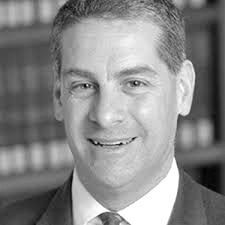Rabbi Akiba said: All is foreseen, yet freedom of the will is given. Avot 3:18
Does God agree? This week’s Haftarah suggests that Holy One takes a different view. God tells Jeremiah:
Before I created you in the womb, I selected you;
Before you were born, I consecrated you;
I appointed you a prophet concerning the nations.
Gunther Plaut’s UAHC commentary interprets the phrase as raising the question of free will and predestination. I am not so sure. It hardly constitutes a problem to state that God chooses people for prophecy, and yet free will exists. God also chose Jonah to be a prophet, but even a cursory examination of that book shows him to have a tremendous amount of free will.
Instead, God’s choosing of a prophet might be better interpreted through the notion of “conscience,” a concept not normally thought of as being reflected in scripture. The Hebrew word for conscience, matzpan, did not even exist in Biblical and rabbinic times. It took time for the notion to appear in Jewish consciousness.
Yet conscience bridges the gap between free will and divine command. When our conscience rises up in us, it often feels as if we are being affected by another power, something outside ourselves. (It is no accident, then, that Haftarat Mattot comes on the heels of “>Beautiful Souls: Saying No, Breaking Ranks, and Heeding the Voice of Conscience in Dark Times attempts to solve the dilemma but can’t.
Press profiled (among others) Aleksander Jevtic, a Serbian army officer who saved Croats in the Balkan wars. Press originally thinks that maybe Jevtic is educated and can rise above communal passions, but he is anything but. He is actually something of a misanthrope who couldn’t care less what other people think of him – not usually the profile of the morally courageous. Paul Grüninger, a Swiss police commander, had a simple explanation for why he broke the law to help Jewish refugees flee Austria in 1938. His daughter remembered that he would repeat the words “I could do nothing else.” (So much for free will.) As the New York Times reviewer remarked, “It is a humble answer, as if to say that anyone would have done the same” (except that the other Swiss police officers didn’t). It cannot be explained.
Moral courage is not a virtue that gets much attention in modern American society. In a democracy, people rarely suffer simply for speaking out. But that only comes at the level of grand politics. Intimidation, bullying and threats can be pervasive in the workplace, in school, and in social groupings. Peer pressure isn’t a cliché; it’s a way of life for teenagers. One of Press’ other profiles is of a financial-industry whistle-blower; certainly the US financial system will continue to provide these sorts of opportunities.
What might promote our own ability to be morally courageous? The question is unanswerable analytically, because we cannot provide a rational answer to something inexplicable like moral courage. But if we are not content to just hope that we will be lucky enough to have moral courage when we need it (and I certainly lack that faith about myself), then we need to look at the realm of spirit and return to God.
The notion of a “calling” seems somewhat quaint, a relic of 18th century Protestantism. It is not. It expresses the idea that one’s life can have a coherent plan and goals, that a long-term life project and purpose is not some sort of fantasy but rather the very marrow of what it means to live excellently. It is the way of asking: why am I here? What is God’s purpose for me? What am I called to do?
If one can actually find her calling, then risk assumes less importance. If we know why we were put on earth, then ridicule, dishonor, and deprivation may seem more peripheral. Conversely, attachment to the signs of worldly success – money, prestige, power – become more important if there is no strong conviction about what makes life worth living. We are more willing to sacrifice these signs of worldly success if they are less important to us, and that comes from having a calling.
But finding a calling is not a rational process. It arrives – if it arrives – through a subtle, frustrating, mercurial process of discernment. A person must gaze deep into her soul and confront her strengths and weaknesses; then, she must reach out into the abyss and hope that Someone answers. That discernment process, at its best, is called prayer.
God, then, did not undermine Jeremiah’s will by choosing him. Instead, God gave him the most precious gifts that the Holy One can bestow: knowledge of his own calling, and thus intimate relationship with his own conscience. He was not happy with it. But it enabled him both to suffer the outrages that came with it and continue his mission nonetheless.
With Haftarat Mattot, we enter the three weeks prior to Tisha B’Av, when we read the Book of Lamentations, or Eicha. Our tradition tells us that it was written by Jeremiah, in despair, as he overlooked the ruins of Jerusalem. But he knew, at least, that writing that book partially fulfilled what he was put on Earth to do. We should all be so lucky.





















 More news and opinions than at a Shabbat dinner, right in your inbox.
More news and opinions than at a Shabbat dinner, right in your inbox.